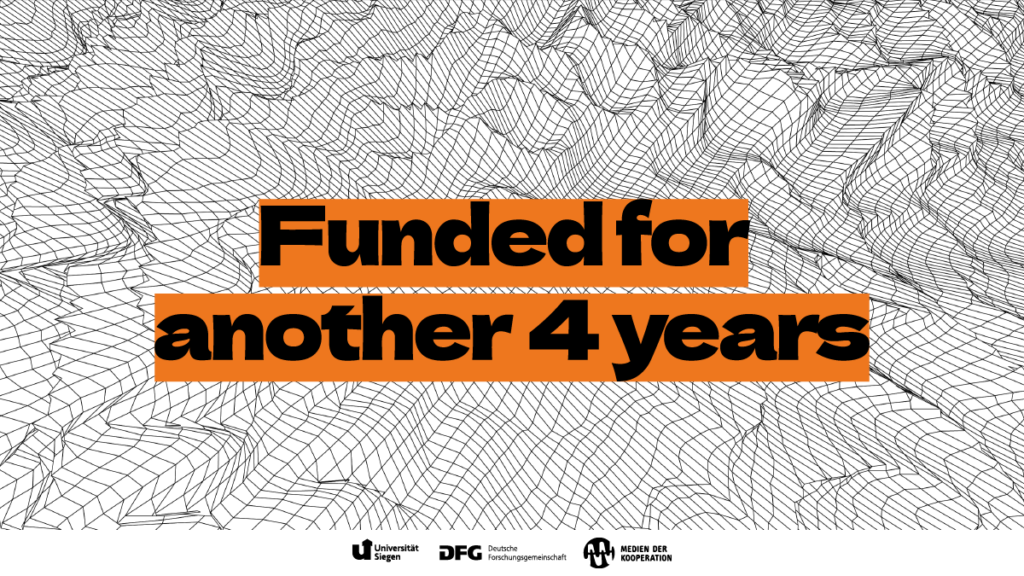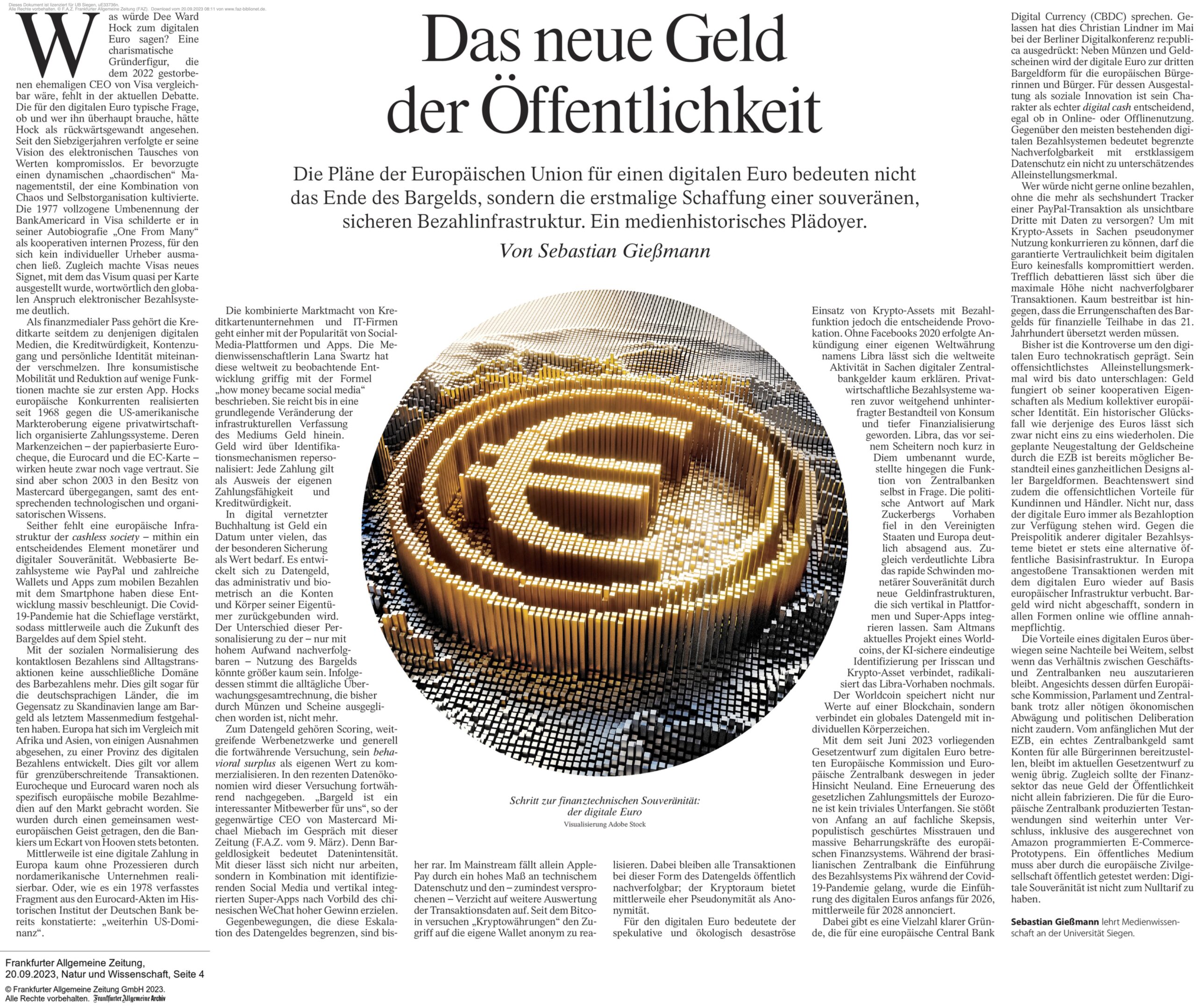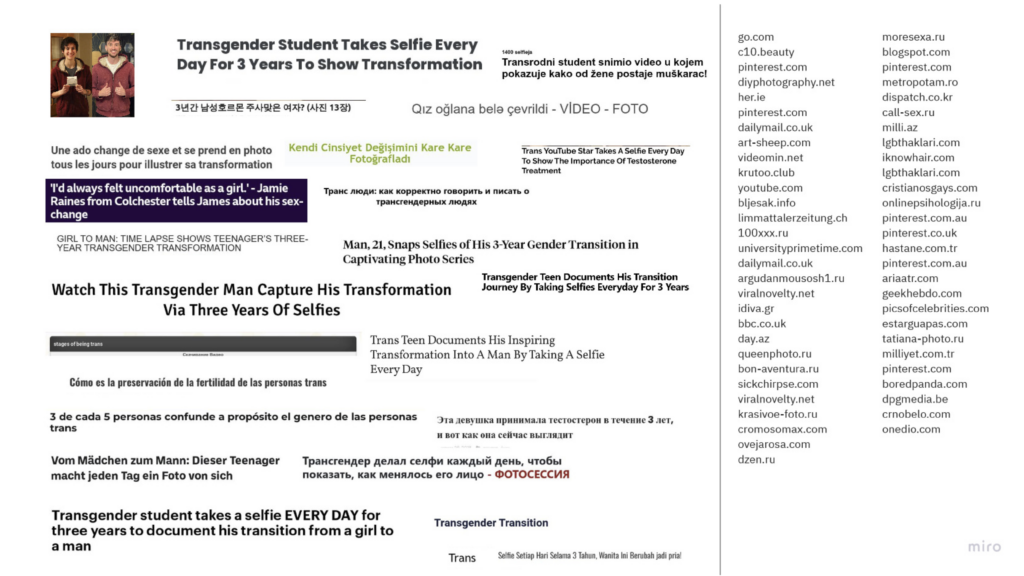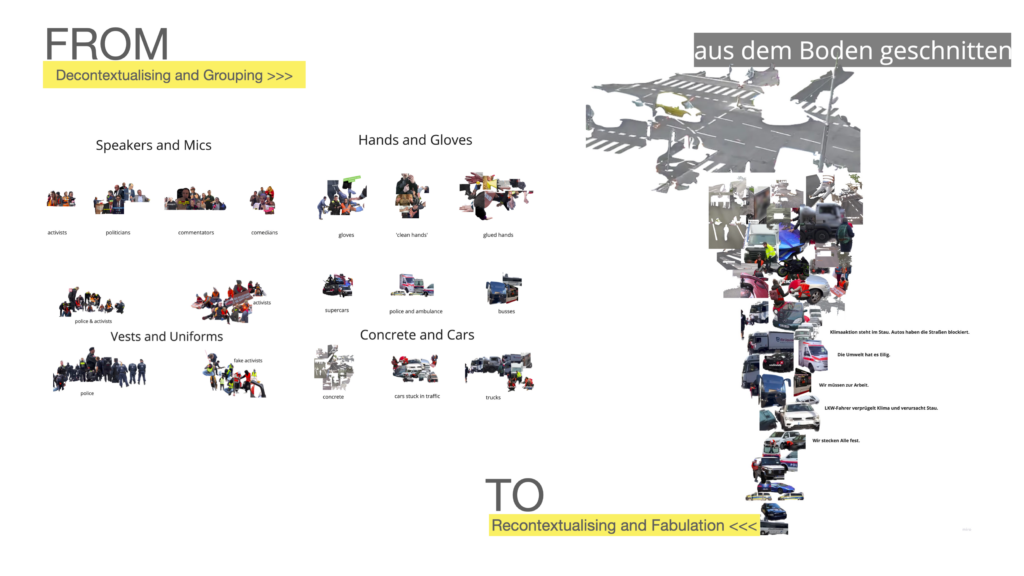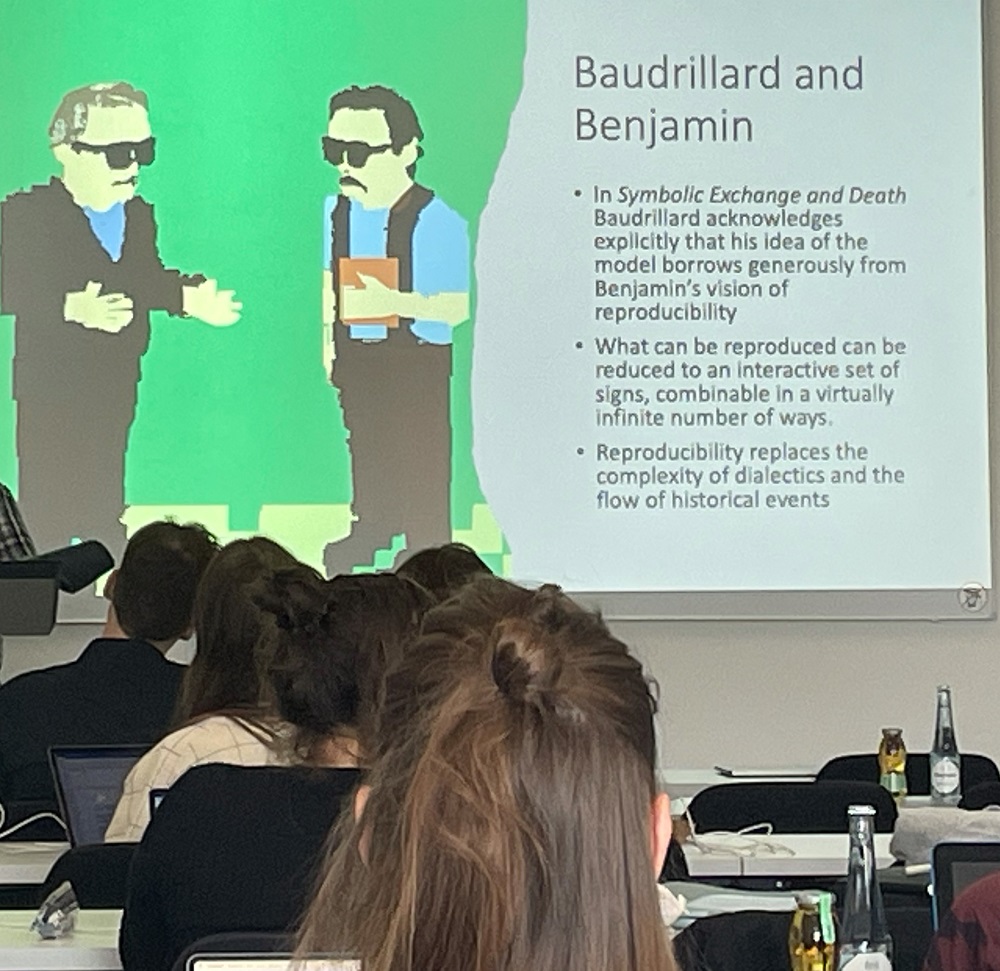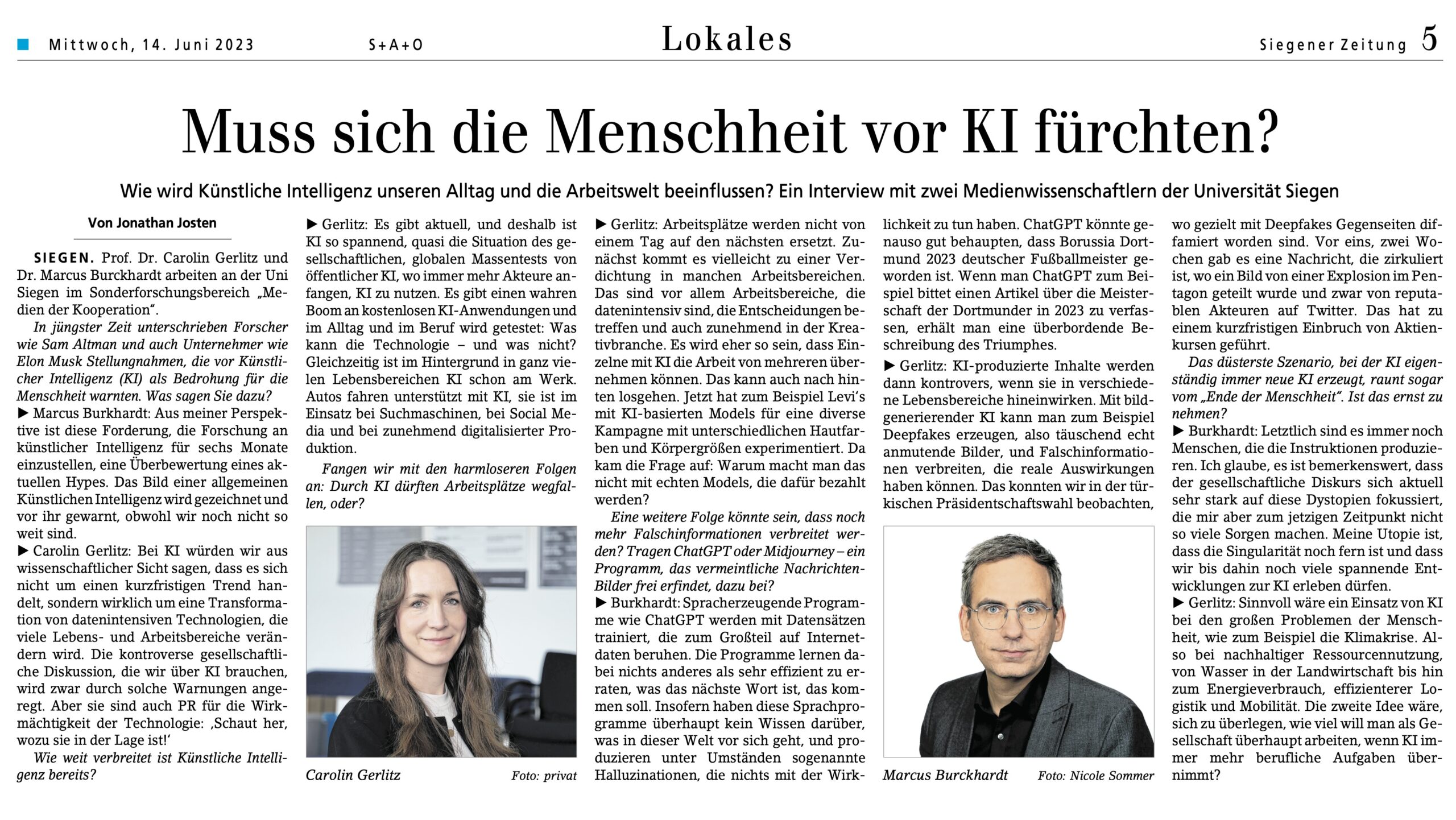News
In the article “The first app: a brief history of the credit card” on ZEVEDI eFin & Demokratie blog, Dr. Sebastian Gießmann traces the development of the credit card as a central medium of consumer society. Starting from its beginnings in the early 20th century as a charge plate, which was particularly widespread in the USA, the transformation of the credit card into a global payment method is described, which embodies both socio-economic prestige and technological innovation.
Sebastian Gießmann shows the developments in media technology and society that have made the credit card an indispensable part of modern capitalism and how the physical credit card has been continuously adapted to the requirements of an increasingly digitalized world – despite and also because of the rapid development of mobile payment services and app-based financial technologies.
➞ Full Article (only available in German)
„Verteilte Zurechenbarkeit. Die Bearbeitung von Störungen im Öffentlichen Verkehr“
Tobias Röhl
Campus, 2022
Tobias Röhl was honored for his habilitation thesis written at the CRC ( project A04) “Verteilte Zurechenbarkeit. Die Bearbeitung von Störungen im Öffentlichen Verkehr” (Campus, 2022) with the Research Prize Ethnography of the Section Sociology of Knowledge of the GSA (German Sociological Association). The award ceremony took place on June 21, 2024 at the 9th Fieldwork Days at TU Dortmund University. The awarded work examines complex disruption management in public transport and explores the question of how accountability is mediated in situations of disruption and is distributed between different actors – from drivers to the administration. Röhl shows that accountability in the event of disruptions cannot be reduced to individuals, but rather arises from the interaction of different actors and technical infrastructures. This “distributed accountability” is the result of a dynamic process in which roles and responsibilities are fluid and constantly renegotiated. The innovative organizational ethnographic study provides valuable insights into the interplay of technology and organization and provides starting points for a well-founded critique of public transport.
Disruptions to public transport are stressful. But where do you complain when the train breaks down? To the staff on site or directly to the company? An ethnographic look at the disruption management of public transport companies shows: Neither strategy is helpful on its own. Drawing on research on accountability and technical infrastructures, the organizational ethnographic study traces how questions of responsibility are technically mediated and shifted back and forth between different actors. This “distributed accountability” cannot be localized in single individuals, but can be found in the interplay of different actors, in the processes and practices of disruption management.
A detailed review of Tobias Röhl’s habilitation thesis „Verteilte Zurechenbarkeit. Die Bearbeitung von Störungen im Öffentlichen Verkehr“ by Hendrik Vollmer was published in 2024 in Soziologische Revue 47 (3): 377-380.
➞ See the review (German only)
About the research prize
In 2024, the Sociology of Knowledge Section of the German Sociological Association awarded the fifth “Ethnography Research Prize” for innovative and outstanding work in the field of ethnographic social research. The prize was endowed with 1,500 euros and awarded during the “Fieldwork Days”, which are usually held every two years. The 9th Fieldwork Days took place for the first time at TU Dortmund University in June 2024.
The “Research Prize Ethnography” is awarded to scientific publications (monographs or essays in German or English) that have been published in the three calendar years preceding the award ceremony. The prizewinner is selected by a jury consisting of five members of the Sociology of Knowledge Section of the German Sociological Association.
➞More about the research prize (German only)
From 2016 to 2020, Tobias Röhl was a researcher in the project A04 – Normal Interruptions of Service. Structure and Change of Public Infrastructures“ at the Collaborative Research Centre 1187 „Media of Cooperation“. Since 2021 he is Professor of Digital Learning and Teaching at the Zurich University of Teacher Education and focuses on the digital transformation of school education. After studying sociology, media studies and linguistics at the University of Konstanz and Trinity College Dublin, he completed his doctorate at the Institute of Sociology at the University of Mainz in 2012 with a thesis on the significance of media and artifacts in the classroom. His habilitation (venia legendi: sociology), accepted at the University of Siegen in 2021, deals with the dynamics of attributability in public transport disruption management. Röhl is currently researching the digital transformation of school education with a particular focus on pedagogical professionalism in the context of artificial intelligence.
The German Sociological Association (GSA) is a non-profit organization whose main objectives are to discuss sociological problems, to promote scientific communication among its members and to contribute to the dissemination and deepening of sociological knowledge. The GSA participates in the clarification of technical and academic issues in sociology and maintains relations with sociology abroad. The GSA is the association of academically qualified sociologists in Germany. It currently has around 3,500 members. Around four-fifths of all sociologists in Germany with a doctorate belong to it. Membership of the association is open to all persons who have proven themselves academically through their studies, research, teaching or publications in the field of sociology.
The 3rd phase (2024-2027) of the SFB 1187 Media of Cooperation focuses on sensor media’s scaling performance. The CRC’s research program covers the entire spectrum of this scaling performance, from the level of the body and micro-interaction to distributed situations of sensor data, transnational surveillance, and global data infrastructures.
“Scales of Cooperation” discusses the CRC’s cross-scale understanding of cooperation, starting from micro-situational cooperation practices to the cooperation of transnational infrastructures with their data and data practices. The SFB aims to develop a media theory of this cooperatively composed scaling performance, leading to a final conference and publication of the CRC in 2027.
To this end, the SFB will launch a first lecture series on “Scales of Sovereignty” in the summer semester of 2024, which will examine different scalings of the claim to sovereignty of various actors from the local to the global level—starting from individual media situations to the political-regulatory level of the European Union and beyond.
Scales of Sovereignty – Summer Term 2024
Digitale Politik und postdigitale Souveränität: Zwischen Technokratie, Öffentlichkeit und medialer Kontrolle?
15.05.24 | 4.15-5.45 PM | Hybrid
Lecture by Prof. Dr. Stephan Packard (Universität zu Köln)
The Double Alignment Problem – On the Transfer of Sovereignty between Humans and AI
28.05.24 | 4.15-5.45 PM | Hybrid
Lecture by Prof. Dr. Roberto Simanowski
The Double Alignment Problem Continued (part of Werkstatt Media Practice Theory)
29.05.24 | 10.00-11.30 AM | Hybrid
Workshop mit Prof. Dr. Roberto Simanowski
The Semi-Souvereign Fifth Estate
12.06.24 | 4.15-5.45 PM | Hybrid
Lecture by Prof. Dr. William Dutton (Michigan State University)
Regulating Sovereignty in Cyberspace
29.05.24 26.06.24 (new date) | 4.15-5.45 PM | Hybrid
Lecture by Prof. Dr. Yik Chan Chin (Beijing Normal University)
All events take place in hybrid form (on site and via Webex).
University of Siegen
Campus Herrengarten
Herrengarten 3
D-57072 Siegen
Room AH-A 217/218
Please register here if you want to attend online.

Jutta Wiesemann, Principal Investigator of project B05 “Early childhood and smartphones”, was a studio guest on the ‘Lokalzeit’ programme on 14 March 2024. The regional WDR programme presented the Krümelkiste, a tablet using daycare centre in Arnsberg, among other things. In the subsequent discussion with the presenter, Wiesemann emphasised the importance of digital education and the associated need to develop media education concepts for daycare centres.
Jutta Wiesemann is a professor of educational science specialising in primary and pre-school education and researches sensory practices in digital childhoods at the CRC.
The WDR programme is available in the ARD-Mediathek. It is only available in German.
CRC granted funding for another four years
We are happy to announce the official start of the 3rd phase of our Collaborative Research Center Media of Cooperation. We warmly welcome all members!
→ Read more about the new research programme
About new projects
A special welcome goes out to our new projects and new project members! We are very pleased to have the following project join our team:
A07 – Industry of Personal Data, led by Max Becker (together with Marcus Burkhardt)
B09 – Bicycle Media: Analyses of a Cooperatively Moving Medium, led by Julia Bee
P04 – Precision Farming: Co-operative Practices of Virtual Fencing, led by Kathrin Friedrich (together with Tristan Thielmann)
P05 – Social Interaction in Semi-Automated Road Traffic, led by Shadan Sadeghian and Kristof van Laerhoven
P06 – War Sensing, led by Migle Bareikyte
Ö – Public Relations: Researching and Designing Cooperatively, led by Julia Bee (together with Jutta Wiesemann and Martin Zillinger)
We look forward to our final four years of collaborative research, intensive fieldwork, methods development, interdisciplinary cooperation, and final publications. In the coming years, we will once again advance our agenda to explore the relation between sensing & sense-making and the cooperative accomplishment of sensory media and develop our take on sensory praxeology. At the same we can draw on eight years of experience of working on cooperation and working cooperatively.
As the DFG puts it in their acceptance letter:
“The third funding period promises a rich harvest phase and at the same time marks a new beginning and perspectives for further research beyond the Collaborative Research Center.” (translation).
The DFG has decided: Our CRC 1187 “Media of Cooperation” has been granted funding for another 4 years, starting January 2024! We are delighted about the DFG’s decision and thank our excellent team of researchers for all the work put into the CRC, the application, the on-site review, the team building, and the fantastic research program. It was a collective effort!
We are also excited to welcome the new projects and PIs, and look forward to shaping more years of research on media of cooperation together, including a future focus on sensory media, artificial intelligence, and sensory praxeology.
Let’s continue the collective work on media of cooperation!
Click here for the university’s press release (in German).
Click here for the DFG press release.
Forget crypto! We need a new money for the European public. Sebastian Gießmann, principal investigator of A01, makes a plea for the digital euro on the science pages of the FAZ:
We look happily back at this year’s Mixing Methods Summer School to recap what our participants have accomplished.
During the summer school “More Than Data: Positionality and Situatedness in Digital Research”, two groups contributed to the practical tracks: “Mapping the Misappropriation of Images of Transbodies” and “#letztegeneration meets #klimakleber: Mapping TikTok Imaginaries of Climate Activism and Climate Change Denial”. With facilitators Aikaterini Mniestri, Elena Pilipets, and Julia Bee, our contributors explored questions of positionality in the process of obtaining, visualizing, and interpreting online-ethnographic and visual platform data. The week of explorations opened with a welcome address by Carolin Gerlitz and a keynote by Gabriele Colombo titled ‘Unfolding data: lists, catalogues, supercuts, and other visual formats for digital research.’ In addition, a workshop by Jason Chao and Elena Pilipets, ‘Memespector: Web Detection and the Multi-Situatedness of the Digital Image,’ introduced participants to different methods of contextualizing image collections.
The first group, ‘Mapping Misappropriation’, used a mix of quantitative and qualitative methods to explore the misappropriation of the images of trans content creators across the internet. The main results confirmed the initial hypothesis that the images published by trans content creators on their public accounts have been misappropriated to different ends.
Figure 1: Mapping Misappropriation of Trans bodies: the image of Jamie Raines and its online contexts
The project’s main results indicate the presence of these images on Russian adult sites and their resurgence in hate speech on platforms like 4chan. News articles with varying degrees of transphobia were collected and grouped based on their content. The project integrated web locations of these images into visualizations for better understanding. These findings emphasize the significance of this topic in new media and digital methods, calling for further examination of the misuse of images depicting minoritized bodies online.
The second group, ‘TikTok imaginaries’, explored a collection of 632 TikTok videos, focusing on the contemporary online imaginaries of climate activism and climate change denial. Using TikTok video metadata, participants worked with extracted video frames and associated information, including co-hashtags, stickers, and sounds. AI-assisted speech-to-text conversion and computer vision-generated image annotations were employed to locate different forms of embodiment in TikTok performances. By removing background, de-contextualized human and nonhuman bodies ranging from microphones and vehicles to hands, gloves, uniforms, and safety vests were then re-contextualized and collectively re-arranged in collages.
Figure 2: From Decontextualization to Recontextualization: Re-imagining ‘bodies that stick’ in connection to the power dynamics they enact
Combining methods of ethical fabrication with feminist approaches, some social connections and power relations surfacing through data were re-imagined, while others remained intact in their linkages to one another and their TikTok-mediated contexts. Diverse positionalities, arising from TikTok performances and our research interventions, prompted us to critically assess the influence and ‘weight’ of affectively charged associations that stick onto activists’ bodies. In de-constructing the hateful rhetoric of climate change deniers, ethical considerations arise. These include both avoiding the normative reproduction of systemic violence and the necessity to support activists through inventive approaches that go beyond digital amplification.
We thank everyone for their participation and contributions!
In an interview with the Siegener Zeitung, Carolin Gerlitz, spokesperson and principal investigator of A03, P03 and MGK, and Marcus Burkhardt, principal investigator of B08, answer how artificial intelligence influences our everyday lives and the world of work.
3 / 6
